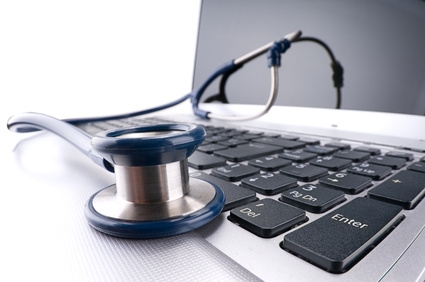 By Emily Murray
By Emily Murray
With all the information we currently have at our fingertips, we are merely one click away from the answer to most questions.
When it comes to our health, there are countless websites that offer symptom checkers and self diagnostic tools. While they are often very accurate, there are still certain ailments that require a doctor of course. The last time you were sick, did you go online to see if you could find the answers yourself before making that doctor’s appointment? Or have you researched a family member’s symptoms when they put up a fight about making an appointment?
According to a recent USA Today article, you aren’t alone!
Thirty-five percent of all Americans reportedly surf the Net for diagnosis. A recent survey from the Pew Research Center in Washington D.C. reported this statistic along with several others.
Furthermore, of the adults who reported checking health information online, 59% say that they are looking for a possible diagnosis. According to the study’s lead researcher, Susannah Fox (as reported by USA Today), the survey was not intended to make a claim that self diagnosis via the Internet is good or bad it was simply to accurately track the behavior of Internet users in regard to health care.
Fox also explains that just because people are looking for a diagnosis online, it doesn’t mean that they won’t head to the doctor’s office anyway. They may just have some suggestions or voice their theories on what could possibly be causing them trouble. Does this drive doctors crazy? Well, that we may not know for sure but according to the survey, about 18% of those who self-diagnosed via the Web had their diagnosis disputed by an actual medical professional. On the other hand, more cases were confirmed than rejected. Forty-one percent of the time, a doctor confirmed the diagnosis these patients had found online.
Another area of Internet healthcare is the support system that it can provide patients who have similar serious diagnosis. While it seems many of these groups exist, the survey revealed that when it comes to seeking support, more people are getting it from their friends, family and doctors than from those on the Net. In fact, 70% relied on support from doctors, 60% from friends and family and 24% said they received support for a serious condition online.
Experts agree that one of the best scenarios is to have doctors and medical professionals available online so while patients are researching, they can also seek the insight of a professional. More and more doctors are available via website or email so they can more directly converse with their patients and answer questions outside of normal office hours.
For those in the medical field who have been concerned that the Internet is steering people away from actually seeking the advice of a physician before acting on a self-diagnosis, this new information may set their minds at ease. It appears these online resources are merely used in conjunction with the advice of an M.D. and may result in a more accurate diagnosis. These online health resources continue to help the medical world evolve.







